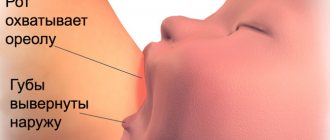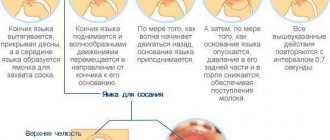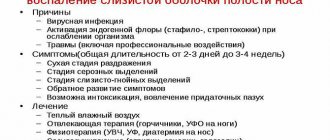If during pregnancy most women who smoke try to give up the bad habit, then after childbirth many mothers remove this restriction. But after the birth of a child, his connection with his mother does not stop. Harmful substances consumed by a woman reach the baby through his natural food - mother's milk. In addition, the child is not protected from inhaling cigarette smoke if the mother smokes in the same room where the baby is.
Not everyone thinks about the dangers of smoking while breastfeeding. However, this mother’s addiction causes enormous harm to the child’s health. Are temporary pleasures really higher than the health of the baby?
Is it possible to smoke while breastfeeding?
There is a fairly widespread belief that smoking is compatible with breastfeeding. The following fallacious arguments are usually given in favor of this:
- Milk has the ability to neutralize harmful components. This is far from true. The value of milk is undeniable, but all the substances entering it are passed on to the baby, including nicotine.
- Nicotine is broken down in the body of a nursing woman and does not enter milk. Wrong. Research shows that the amount of nicotine found in breast milk is 2.9 times greater than in maternal plasma [4]. In addition to nicotine, cigarettes contain harmful compounds and tars that negatively affect the baby’s body.
- Smoking does not harm lactation. This is a myth: lactation decreases by 25%.
- The taste of the milk does not change. In fact, both taste and smell change, just like when drinking alcohol, garlic, or spicy foods.
If a woman is unable to quit smoking, the number of cigarettes smoked per day should be reduced to a minimum. At the same time, experts do not recommend giving up breastfeeding and switching the baby to artificial feeding. In any case, breast milk is healthier for the baby than ready-made milk formulas.
Effect on lactation
How does smoking affect breastfeeding? The answer is clear: it has a direct negative effect on the functioning of the mammary glands. Nicotine disrupts a woman's hormonal balance, which changes after childbirth. It reduces the formation of prolactin and oxytocin, hormones that stimulate lactation.
If a mother smokes from the first days after childbirth, the likelihood of stopping the secretion of the mammary glands increases, and the amount of valuable components in the milk itself decreases. Addiction to nicotine also negatively affects a woman’s psychological state. A smoking mother should be prepared to breastfeed her baby for no more than six months.
The relationship between smoking, demographic variables and breastfeeding status at 8 weeks postpartum was examined in 510 women. 400 of them gave birth to full-term children, and 110 gave birth to low birth weight children. The analysis found that women who smoked were more likely to stop breastfeeding early in both study groups. In addition, a large proportion of smokers indicated insufficient milk supply as the reason for their desire to stop breastfeeding. [6]
It is known from various studies that women who smoke breastfeed their children for a shorter period of time than non-smokers. However, evidence of a physiological mechanism for decreased lactation in smokers is not convincing. [5] Moreover, there are no rules without exceptions.
Does nicotine get into milk?
If a woman smokes in the presence of a baby, he inhales harmful smoke components, i.e. passively smokes. Even if the mother smokes in an isolated room, the baby is not protected from the effects of nicotine. Harmful substances are absorbed into a woman’s blood and then enter the milk. As mentioned above, research results from the Australian University showed that the amount of nicotine in breast milk is 2.9 times higher than nicotine in the mother’s blood plasma [4].
Should smoking mothers feed or not feed their babies?
Even if lactation has already been established in a smoking mother, and the newborn does not refuse to breastfeed, you should weigh the pros and cons before continuing feeding.
Important! If you smoke, you need to monitor your baby's health as closely as possible. In situations where there are no deviations from the norm in development and there are no pathologies, feeding can be continued. But if the mother smokes a large number of cigarettes, the baby does not gain weight well, often gets sick, does not grow and does not develop compared to his peers, then you may have to give up breastfeeding.
Of course, there is no better food for a newborn than his mother’s milk, but if a woman smokes more than 5 cigarettes during the day, then the benefits of breastfeeding under such circumstances are questionable.
If a woman smokes every hour, then it makes no sense to be interested in how long it takes for nicotine to be excreted from breast milk. Its concentration in blood and milk will remain at the same level (extremely high) throughout the day.
We must not forget that every cigarette smoked causes irreparable harm to the health of the little man. Therefore, if the child’s life is more valuable, there is only one way out - to get rid of the addiction as quickly as possible.
Positive effect of breastfeeding on children born to smoking women
It turns out that if a mother smoked during pregnancy, breastfeeding can smooth out the adverse effects of her smoking on the child. A study conducted in the Netherlands looked at the school performance of 570 nine-year-old children whose mothers smoked during pregnancy. The children were born in 1975-1978. According to the researchers, "the results indicate that the negative effects of maternal smoking on children's cognitive functioning were limited to those who did not receive breast milk." [2]
Thus, formula-fed children had lower cognitive abilities compared to breastfed children. Researchers have suggested that breast milk promotes baby brain development and helps counteract the adverse effects of maternal smoking during pregnancy.
Does nicotine get into milk?
After a woman smokes, this substance enters the bloodstream. The saturation of poisons and toxins penetrating into the blood is quite high. Further, through the blood, nicotine and its breakdown products penetrate into breast milk.
On a note. Reliable evidence of the presence of nicotine in the breast milk of a smoker is research that has found that the level of nicotine in a baby of a smoking woman is 8-12 times higher than in a child whose mother does not suffer from the addiction.
The harm of cigarettes: the risk of SIDS
Nicotine is a naturally occurring alkaloid present in tobacco leaves. It is recognized as a serious narcotic substance, extremely dangerous to humans. The lethal dose is 1 mg/kg. For comparison: the lethal dose of potassium cyanide is 1.7 mg/kg.
In addition to nicotine, a cigarette contains approximately 4 thousand chemical compounds that are extremely dangerous and negatively affect lactation and the woman’s body as a whole: 1/7 of these substances provoke cancer. Smoking is dangerous not only for the smoker, but also for others. The baby is at increased risk because he stays with his mother for a long time. He is a passive smoker.
According to a study conducted by the University of California, secondhand smoke in an infant increases the risk of developing SIDS (sudden infant death syndrome) [3]. Doctors should inform future parents about the dangers of exposure to tobacco smoke on a child during fetal development and the first year of life. A woman planning a pregnancy also needs to know about the protective functions of breast milk, due to which the risk of SIDS from passive smoking is reduced several times.
Harm to the child
A woman who smokes harms not only herself, but also the health of her child.
The main thing a mother should think about is the baby’s health, so she needs to do everything possible to keep him healthy. Smoking while breastfeeding can have serious negative consequences for the baby. The nicotine habit can be fatal.
Lactation and smoking by the mother entails the following consequences for the newborn:
- disorders of nervous activity: the baby constantly cries, sleeps poorly and nervously, there is constant moodiness;
- there is a risk of sudden infant death. It appears due to constant passive smoking of a newborn; it is especially dangerous for a child to be in a family where both parents are smokers;
- the entry of nicotine tar into a child’s body entails a deterioration of the defense system. Immunity decreases, and the baby is constantly sick, infections easily cling to him, and he recovers for a long time;
- Harmful substances from cigarettes affect the gastrointestinal tract. At the same time, the baby often has a stomach ache, flatulence appears, and from the pain he cries a lot and pulls his legs towards his tummy. Gains weight very little and slowly, and sometimes may lose weight;
- the harmful effect of cigarettes on general health causes the risk of pathologies of the respiratory system;
- nicotine causes dysfunction of the small heart, which will subsequently lead to heart failure, arrhythmia, and tachycardia.
Nicotine addiction of a mother during pregnancy and lactation causes serious consequences for the baby in the future. The health of a newborn must be taken care of from birth.
Consequences for the child in the future
Children of smoking parents are more likely to develop various diseases
Older children of smokers are more prone to the following diseases:
- Chronic diseases of the respiratory system. Children often suffer from pneumonia, bronchitis, and tonsillitis; resistance to viruses is minimal.
- Pathologies of the cardiovascular system, children suffer from low blood pressure, the walls of blood vessels are weak. Heart rhythm disturbances and tachycardia may occur.
- A weakened immune system of the body is not able to resist many viruses, fungi, infections and colds.
- Disturbances of nervous and mental activity lead to a slowdown in development.
- Children begin to speak and walk much later than their peers and are noticeably behind them in development.
- Children of smokers have an increased risk of developing cancer.
Smoking while breastfeeding has negative consequences, so the mother’s best decision in this situation would be to give up nicotine addiction.
Important! Feeding milk with nicotine resins causes addiction in the infant, and in the future there is a high risk of developing nicotine addiction.
Nicotine tar can enter the baby's body through breast milk.
Effects of smoking while breastfeeding: short and long term
Some women who smoke believe that breastfeeding does not last long and there will be no significant harm from nicotine for the baby: the body will grow and recover. However, the consequences of maternal smoking for the child are long-term.
The behavior of a child who was breastfed by a smoking mother exhibits distinctive features:
- he becomes irritable and capricious for no reason;
- sleep is disturbed: in the study, the child slept 53.4 minutes (when the mother smoked) instead of 84.5 minutes (when the mother did not smoke) [8];
- the child lags behind in motor development: later he begins to sit, crawl, and walk.
Some researchers claim that maternal smoking negatively affects baby weight gain, but others deny this fact [7].
Smoking by a woman while breastfeeding creates serious long-term consequences for the child: damage to internal organs, the nervous system (data not confirmed):
- such children suffer from poor memory;
- their concentration is weakened;
- learning ability decreases;
- aggressiveness appears;
- children are susceptible to respiratory diseases;
- they often have allergies;
- in adolescents – a tendency to develop nicotine and other addictions;
- predisposition to the development of cancer.
The harm of smoking for a nursing mother
After childbirth, the body is weakened. To quickly gain strength, you need to follow a routine, eat right, and walk a lot. For women who smoke, the recovery process takes longer. Due to this, hormonal levels may be disrupted.
During lactation, a woman needs a lot of useful substances to provide herself and her baby with the necessary vitamins. Toxic compounds in tobacco disrupt the metabolism of beneficial substances. Long-term smoking leads to persistent deficiency of vitamins A, C, E, D, B6, B12. This is where the main harm of smoking for a woman lies during breastfeeding.
Smoking during breastfeeding leads to a decrease in the production of breast milk, blocking the production of prolactin, as well as to frequent lactostasis, narrowing the vessels and ducts of the mammary glands.
How to quit: 17 simple tips
A woman needs to quit smoking even before conceiving a baby. Smoking and breastfeeding are incompatible concepts, despite the fact that “breastfeeding + smoking” is less harmful to the child than “artificial feeding + smoking” [7].
The main thing when it comes to quitting cigarettes is your psychological attitude. Determine the positive aspects of life without a cigarette for you and your baby - this will become the main incentive. It is necessary to develop a list of restrictions and strictly follow them. If you can’t do everything at once, you need to identify the four highest priority items and, following them, gradually add the rest.
- Replace the time you smoke a cigarette with sports or a walk. At the same time, positive emotions are added.
- Do not smoke a cigarette on an empty stomach, before or immediately after meals.
- Replace smoking with something pleasant: candy, chewing gum, seeds.
- Smoking in an uncomfortable position, let this activity be associated with discomfort.
- Do not smoke while watching TV, at the computer, or talking on the phone.
- Spend more time with your child, receiving positive emotions.
- Do not smoke the entire cigarette.
- Do not tighten deeply.
- Give preference to cigarettes that do not bring pleasure.
- If you feel the urge to smoke, you should be distracted by other things and try to prolong the time as much as possible.
- Smoking indoors to feel the unpleasantness of the process itself.
- Try not to purchase a new pack for as long as possible.
- If you run out of cigarettes, don’t borrow them.
- Do not smoke out of idleness, try to occupy yourself with useful activities.
- Use folk remedies to help you quit smoking.
- Diversify your diet and make it nutritious.
- Drink the required amount of fluid (at least 2 liters per day).
Switching to artificial feeding
Sensible mothers, who have long been addicted to daily smoking, still think about the health of their baby. And instead of trying to quit the bad habit, they transfer the newborn to artificial feeding. By doing this, they deprive the baby of valuable nutrition, which he needs for full development. In addition, women continue to harm their own health.
Naturally, in this situation, a young mother must evaluate all the risks and make the right decision - to quit smoking. Moreover, she has the strongest motivation for this – the health of the child. But some people simply don't have the willpower and determination to quit cigarettes forever. In this case, many pediatricians advise not to rush to switch to artificial feeding. Smoking while breastfeeding must be minimized, and then the harm from nicotine will also be minimal.
Is it possible to use electronic cigarettes during breastfeeding?
An electronic cigarette – vape (vape), or e-cigarette – is a miniature steam generator. Under the influence of a heated coil, the liquid (so-called liquid) is converted into steam. The resulting vapor is inhaled by the smoker. When using electronic cigarettes, infants are not exposed to carbon monoxide and tar.
According to the results of studies conducted in China, passive smoking from an electronic cigarette is 90% safer than a classic one, since the amount of nicotine entering the surrounding air is 10%, and the concentration of microparticles up to 2.5 microns in size is 18% compared to traditional ones cigarettes. This is due to the fact that most of the smoke is smoke from a cigarette burning “idle”.
The liquid found in an electronic cigarette consists of only 3-5 components:
- propylene glycol;
- glycerol;
- water;
- nicotine;
- flavoring
All these substances (except nicotine, of course) are safe for health. But make no mistake, the electronic cigarette is not a completely harmless device.
The following facts must be taken into account:
- There have been no long-term studies of the effects of propylene glycol and glycerol in liquid on the body of smokers;
- Electronic cigarettes and their “filling” are not subject to certification in Russia. That is, it is not known for certain what the composition of the liquid you purchased is - no one controls this. Only the manufacturer knows what was poured there;
- The e-cigarette still contains nicotine.
Expert opinion
Sokolova L. S.
Pediatrician of the highest category
Although electronic cigarettes cannot be called a harmless gadget, to preserve the health of the child, it is preferable for a smoking mother to use them if she is unable to completely quit smoking.
Replace your regular cigarette with an electronic one. This will be the first step towards quitting smoking forever, and for your child the harm from maternal smoking will be greatly reduced.
How does smoking affect
This habit negatively affects both the health of the woman herself and the condition of the baby. This must be remembered if there is a desire to drag on during lactation.
Impact on nursing mother
The mother herself is the first to suffer from the consequences of smoking. Not only is the body weakened by pregnancy, childbirth and breastfeeding, but the immune system is also undermined by smoking. The protective functions of a smoker’s body work to the limit, and it doesn’t take long to get sick.
In this case, there is a high probability of complete cessation of lactation. In addition, working the body to the limit of its capabilities contributes to rapid aging and wear and tear of all systems and organs of a woman.
It should also be noted that under the influence of nicotine, a sharp narrowing of blood vessels and milk ducts occurs. This threatens a nursing woman with the development of mastitis or lactostasis.
Effect on milk quality
The milk of a smoking mother has a poor composition. It is not sufficiently saturated with nutrients, microelements and vitamins. This milk has a significantly lower content of proteins and vitamins C, A, and E.
On the contrary, the level of harmful chemical elements and compounds is much higher than normal. This applies in particular to cadmium and mercury. The milk of a woman who smokes has an unpleasant bitter taste and a tobacco smell. Not every baby will accept the taste of such food.
Impact on the child
Smoking during lactation can cause the following consequences in the child’s physiology and behavior:
- sleep disturbance – insomnia, frequent awakenings;
- restless, capricious behavior;
- disturbances in the gastrointestinal tract - constipation, colic;
- predisposition to pulmonary diseases and allergic reactions - bronchitis, asthma, diathesis, atopic dermatitis;
- tendency to slow growth, weight and development;
- susceptibility to nicotine addiction.
When can you feed your baby after smoking a cigarette?
The answer to the question of when you can feed your baby after a cigarette lies in the period of nicotine elimination. The researchers calculated that a relatively favorable period for feeding occurs no earlier than one and a half to two hours after smoking a cigarette. This is the time during which the body of a nursing mother begins to part with toxins obtained during the breakdown of nicotine.
If possible, doctors advise delaying the time for at least another hour to reduce the harm even more. If your baby is sleeping, you shouldn't wake your baby just because it's feeding time. In this case, it is better to wait - and the baby will get enough sleep and the level of toxic substances in the milk will decrease.
How milk affects a baby and possible consequences
Under the influence of nicotine, breast milk acquires a number of negative characteristics that do not exist in the milk of non-smoking women.
- First of all, smoking reduces the amount of milk produced. This occurs when nicotine affects the hormone prolactin, which regulates milk production. The milk ducts narrow, so the amount of milk produced is insufficient. In this case, the child suffers from malnutrition and loses weight.
- It should be noted that women who smoke fully feed their babies for 4-6 months, after which the volume of milk produced drops and lactation fades, the child has to be transferred to nutritional formulas that do not fully replace mother's milk.
- The second important point is the quality of mother's milk. According to research results, it is noted that it is depleted of useful substances, vitamins, protective antibodies and hormones. This negatively affects the baby’s immunity, making him defenseless against various diseases.
- There is also evidence that the milk of a mother who smokes during lactation has a taste of nicotine and bitterness, so especially sensitive babies may refuse to breastfeed in the hospital, at the first time, if the mother cannot give up this addiction.
The effect of nicotine on a child
- When nicotine enters the mother's body, it affects the taste of breast milk. How bitter it becomes depends on the amount and intensity of smoking. For a small child, the bitter and unpleasant taste can provoke breast refusal. The fact is that in the first days and weeks after birth, it is very important to give the child immunity and start breastfeeding.
- The baby may not be able to absorb some nutrients. When nicotine enters a child’s body, the same thing happens to him as happened to his mother when she smoked. If a small child's blood vessels constrict, the baby may become excitable and capricious. Without adequately receiving useful substances, the baby may lag behind in development.
- If a mother smokes cigarettes while breastfeeding, the child will be negatively affected and the baby in this case will become dependent on nicotine. Smoking mothers often feed their newborn babies for no more than 5-6 months.











